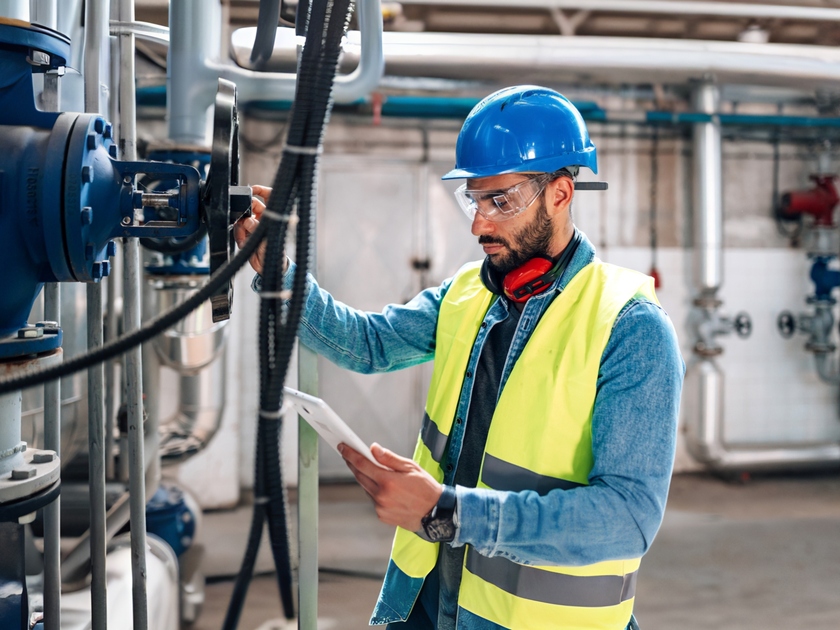When it comes to energy savings, operations and maintenance (O&M) often gets overlooked. Think about it: When did you last review your O&M program? Take a closer look at your O&M practices. You might find plenty of sources of needless energy waste and plenty of opportunities to reduce your operating costs.
Operations
Here are some ways to make your operations more energy efficient:
- Minimize surplus combustion air by tuning damper settings on boiler draft fans, installing over-fire draft control systems, sealing doors, etc. Excess air in the combustion chamber contributes to heat loss via flue gas escape.
- Lower the water temperature in boilers to reduce short-cycle loss, as well as convective and radiant heat loss. For every 40°F reduction in stack temperature, a 1% gain in boiler efficiency is possible.
- Prevent scale accumulation by ensuring water treatment systems are operating effectively. Scale build-up in boiler tubes inhibits both throughput and heat transfer.
- Rework the schedule of processing operations. For example, minimize the frequency of mixed and/or partial loads to reduce delays and reheat requirements.
Remember that your operational requirements change over time, so a periodic review of your operations can identify more opportunities.
Maintenance
A good maintenance program should include the following tasks:
- Inspect and recalibrate thermocouples in furnaces to obtain more accurate zone temperature measurements and help increase furnace efficiency.
- Install removable insulation on uninsulated valves, pipes and fittings to reduce losses in the process heat distribution system.
- Inspect steam distribution systems for leaks and repair where necessary. Possible sources of unnoticed leaks include piping, valves, process equipment, steam traps, flanges and seals.
- Regularly clean strainers upstream of steam traps to prevent particle accumulation. Excessive deposition can hasten the need for repair or replacement.
When it comes to maintenance, think predictive, not deferred.
More ways to save
Other steps you should consider include:
- Having your space heating system cleaned and inspected annually by a qualified professional to ensure optimal performance.
- Checking windows and exterior doors for air leaks. Seal any you find with caulk or weatherstripping.
- Measuring and managing ventilation in your facility. In moderate and colder climates, use an economizer to optimize outside air use. Replace warped or worn outside air dampers.
- Understanding your gas rate schedule. Make sure it's appropriate for the volume of gas your facility uses.
Looking to save more? Hire a qualified energy professional to perform an energy audit of your facility. Your auditor will examine your facility, evaluate your energy usage and provide you with a targeted set of cost-saving recommendations.

